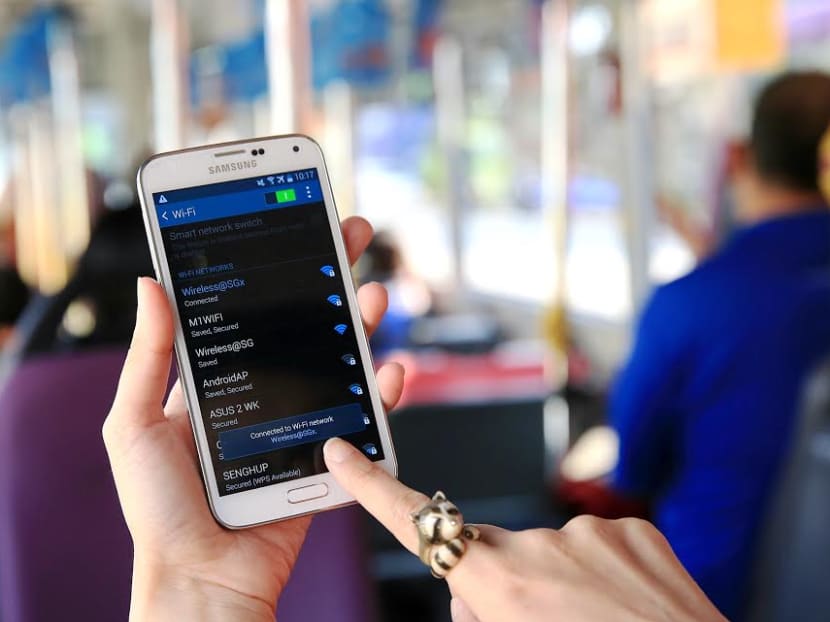M1 expects to roll out 4.5G network by next year
SINGAPORE — Mobile users can expect to experience faster speeds by next year, as telcos here start to roll out the 4.5G network.

M1 said on Friday (Oct 28) that its 4.5G network is expected to be deployed by 2017, which will boost download speeds about three times fastere than the current 4G network. Photo: TODAY
SINGAPORE — Mobile users can expect to experience faster speeds by next year, as telcos here start to roll out the 4.5G network.
M1 said on Friday (Oct 28) that its 4.5G network is expected to be deployed by 2017, and will boast downloads speeds that are about three times faster than the current 4G network — up to more than 1Gbps.
And this latest network will do more than support mobile services, said an M1 spokesman during a Narrow Band Internet of Things (IoT) demo.
It will be capable of supporting the connections of millions of sensors and IoT devices nationwide.
M1 aims to roll out a Narrow Band Internet of Things network also by next year in tandem with Singapore’s Smart Nation drive.
Responding to queries, a Singtel spokesman said it is also on track to roll out a 4.5G network by next year. StarHub said it is “prepared to boost data speeds to over 1Gbps for our mobile customers, when more wireless spectrum bands and supported phone models become available”.
On Friday, M1’s Chief Technical Officer Denis Seek also said that, with its NB-IoT network in place by mid-2017, M1 would be well-positioned to participate in national Smart Nation initiatives. These include environmental sensors to track pollutants, rainfall, sun intensity and haze, as well as smart metering applications to measure and provide real-time consumption of electricity, gas and water consumption so consumers can better track their utility usage.
Addressing security concerns over Internet-connected devices in the wake of the distributed denial-of-service (DDoS) attacks that hit StarHub last week, M1 Chief Operating Officer Patrick Scodeller said of its IoT network: “Most national smart metering systems would probably be end-to-end solutions, meaning that you probably can’t go to any hardware shop to buy a water meter sensor and plug it into the national utilities system. So the ecosystem, from a security point of view, is a lot better controlled as opposed to just consumers buying a webcam.”
Mr Seek added that security will be built into the design of the IoT network, which will be subjected to penetration tests.
Earlier this week, StarHub had linked the DDoS incidents to infected Internet-connected devices in the homes of subscribers — such as computers, routers and webcams — that were hijacked for the cyberattacks.
Infected webcams were also blamed for the DDoS attacks on United-States-based DNS service provider, Dyn, that took out many popular websites, including Twitter, Netflix and PayPal.






